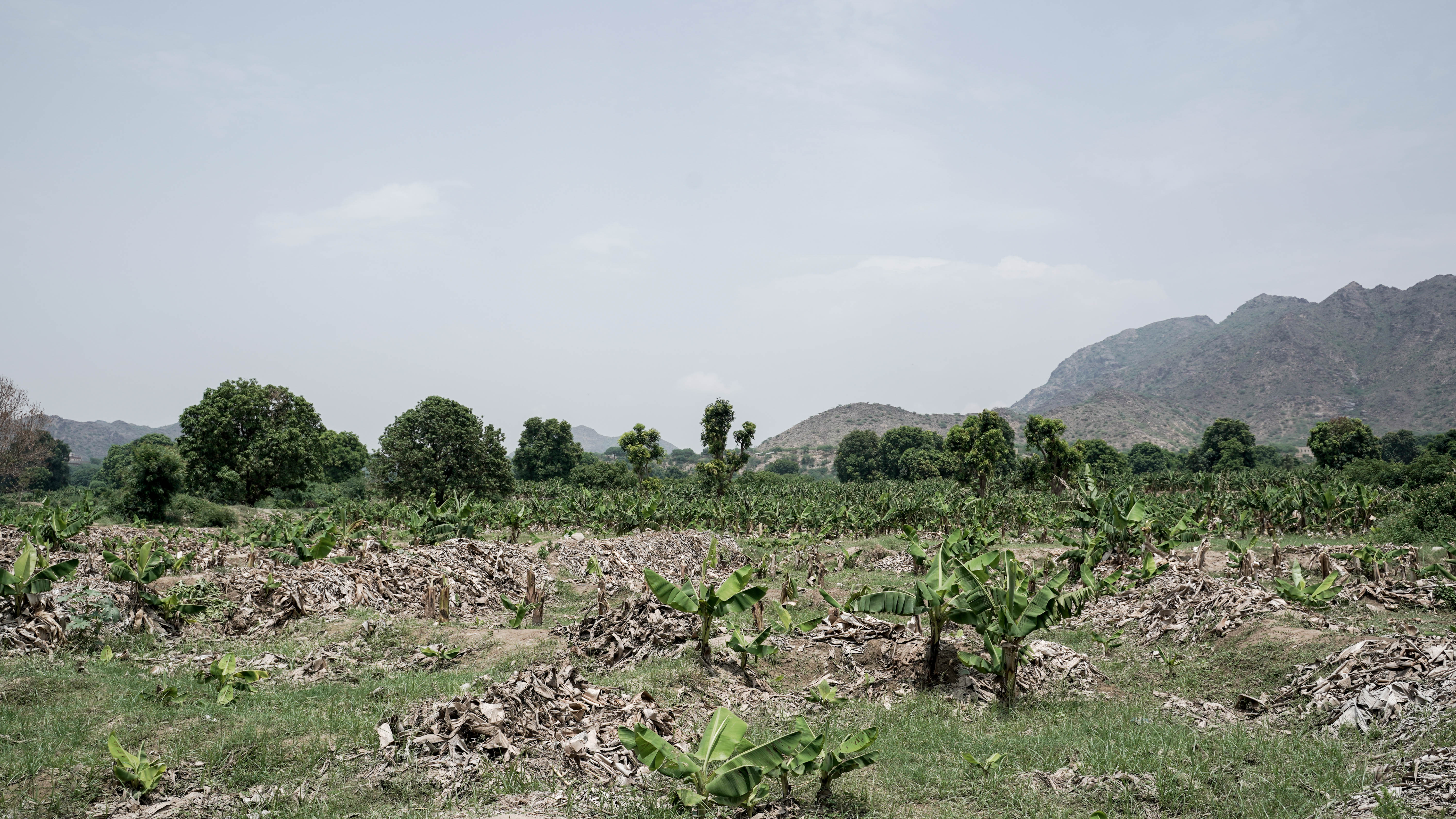How climate change disproportionally affects women and youth in Yemen
Shared crisis, different impact
June 17, 2025

A Yemeni woman farmer picks peppers from her field.
Yemen is facing increasing challenges linked to the changing climate. Water scarcity, rising temperatures, floods and droughts are adding to existing constraints caused by years of conflict and weakened basic services. These shifts impact everyone, yet the experience is not the same for all.
One of the clearest signs of these overlapping challenges is the rise in displacement. Climate-related shocks and ongoing insecurity have forced many families to leave their homes in search of safety, stability and better living conditions. Today, millions of people across Yemen live as internally displaced persons (IDPs), often overstretching services and resources.
Societal roles shape how climate impacts are felt and how people are able to respond. These roles also affect access to information, support networks and decision-making, all of which influence how people and families cope with environmental changes.
Climate change does not affect everyone in the same way

A view of a banana field from Yemen affected by climate change.
Women and girls in Yemen are often the first to bear the burden of climate change. As primary caregivers and water collectors in many households, they are forced to travel longer distances in search of water, exposing them to health and safety risks. These growing responsibilities consume significant portions of their day, leaving little time for attending school or pursuing income-generating activities. As a result, their access to education is disrupted, and their ability to develop skills or engage in the workforce is severely limited.
Women also carry knowledge—passed down through generations—on how to manage limited resources, conserve water, and use local plants for food and medicine. In some communities, women are increasingly involved in small-scale solutions, such as home-based farming, food preservation, or water-saving methods, contributing meaningfully to household and community resilience.
Looking ahead with fewer resources

A young farmer working in a papaya field in Yemen.
Young people in Yemen are confronting a future shaped by climate unpredictability and shrinking economic prospects. In rural areas, erratic rainfall and soil degradation make farming less viable, while heatwaves and floods in urban centres can disrupt schooling, strain healthcare systems, and limit economic activity. Displaced young people face even greater challenges, with fewer opportunities for school, skills development, or stable work.
Still, young Yemenis continue to show innovation and resolve. Many are launching small-scale environmental initiatives and leading awareness campaigns. Their energy and creativity are powerful assets in shaping climate responses that are not only sustainable but rooted in the realities of daily life.
Understanding different realities

A woman holds crops she harvested from her field.
While climate change affects everyone, it does so in different ways. Recognising how people’s roles, responsibilities, and living conditions influence their experiences helps inform more inclusive and realistic responses. This is especially true for women, youth, and displaced families who often face additional pressures but also offer strong local knowledge, commitment, and solutions.
When climate solutions reflect people’s lived realities and draw on their existing strengths, they become more equitable, more practical, and more sustainable.
A focus on climate change, water, energy, and the environment in Yemen

A Yemeni woman takes a break from working in her field.
Through partnerships with the Global Environment Facility (GEF), the Green Climate Fund, the Government of Japan, and the German Federal Ministry for Economic Cooperation and Development (BMZ) through the KfW Development Bank, the United Nations Development Programme (UNDP) is scaling up its support in Yemen by advancing integrated solutions to climate change, water scarcity, and environmental degradation. This includes designing and implementing strategic interventions aimed at strengthening national and local capacities in addressing climate change, disaster risk reduction, sustainable energy, and ecosystem conservation. Focused on supporting evidence-based policymaking and strengthening institutions, UNDP is also engaging communities to build long-term resilience through supporting small-scale farmers, women, and vulnerable groups with incoming-generating initiatives and empowerment through tailored technical training.
Read more:
Enhancing Resilience through Sustainable Water Resource Management
Integrated Water Resources Management to Enhance Resilience of Agriculture and Food Security Project
Long-Term Low Emission Development Strategy and Measurement, Reporting, and Verification

Newly built gabions in the flood-prone valleys of Tuban District, Lahj, constructed as part of the Integrated Water Resources Management Project to Enhance Agricultural and Food Security Resilience.

 Locations
Locations



